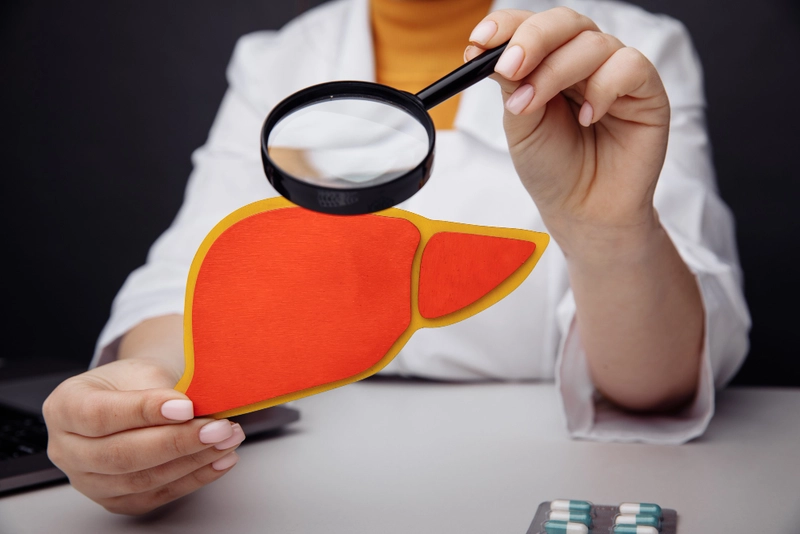- Published on: Jul 07, 2025
- 3 minute read
- By: Secondmedic Expert
CRP Test Meaning And When To Do It
If you’ve recently had blood work or your doctor suspects an infection or inflammation, they may have recommended a CRP test. But what is it? Why is it important? And when exactly should you get it done?
Let’s simplify the medical jargon and walk you through the CRP test meaning and when to do it, especially in the Indian healthcare context.
What Is a CRP Test?
CRP stands for C-reactive protein. It is a substance produced by your liver in response to inflammation in the body.
The CRP test is a blood test that measures the amount of C-reactive protein in your blood. High levels of CRP usually mean there’s inflammation in your body, which could be due to an infection, injury, or a chronic disease like arthritis.
High CRP = Inflammation Alert
This test doesn’t tell you what’s causing the inflammation—it simply tells you that something is wrong, and further testing might be needed.
What Does the CRP Test Detect?
While CRP is a general marker, it is helpful in detecting:
-
Bacterial or viral infections
-
Autoimmune disorders like rheumatoid arthritis or lupus
-
Inflammatory bowel diseases
-
COVID-19 severity
-
Heart disease risk (especially with high-sensitivity CRP or hs-CRP)
When Should You Do a CRP Test?
You should get a CRP test done when:
-
You have fever or chills that won’t go away
-
You’re showing signs of infection like cough, swelling, or pain
-
Your doctor is monitoring an autoimmune disease
-
You’re recovering from surgery or injury
-
Your doctor is checking inflammation due to chronic disease
-
You are showing COVID-like symptoms (to assess severity)
Normal CRP Levels:
|
CRP Level |
Interpretation |
|
Below 1 mg/L |
Low risk of inflammation |
|
1–3 mg/L |
Moderate risk |
|
Above 3 mg/L |
High inflammation or infection present |
|
Above 10 mg/L |
May indicate serious infection or disease |
Note: For heart disease risk, a high-sensitivity CRP (hs-CRP) test is used.
Is Fasting Required for the CRP Test?
No, fasting is not required. You can take the CRP test at any time of day, unless it is being done with other tests that require fasting (like blood sugar or cholesterol).
Lab Tests Packages Including CRP
You can book a CRP test alone or as part of a health package via SecondMedic.com, powered by Thyrocare:
Basic CRP Test
-
Detects inflammation/infection
-
Simple blood draw
-
Home sample collection
COVID Monitoring Panel
-
CRP, D-Dimer, Ferritin, CBC
-
Recommended if you have COVID symptoms or are recovering
Inflammation Panel
-
CRP + ESR + CBC + Liver Profile
-
For those with chronic fatigue, joint pain, or autoimmune diseases
Lifestyle Tips If Your CRP is High
A high CRP may indicate ongoing inflammation. Along with medical treatment, here are some tips:
-
Eat more fruits, vegetables, and whole grains
-
Cut down on sugar and processed food
-
Include omega-3 rich foods like flaxseed and fish
-
Exercise regularly
-
Manage stress and sleep better
-
Quit smoking and limit alcohol
5 Most Asked Questions About the CRP Test
1. What is the CRP test used for?
CRP tests are used to check for inflammation due to infections, autoimmune diseases, and to monitor treatment effectiveness.
2. What causes a high CRP level?
Infections, chronic inflammation, surgery, injuries, and lifestyle diseases like diabetes and heart disease.
3. Is a CRP test painful?
No. It’s a simple blood test and usually takes just a few minutes.
4. How long does it take to get CRP test results?
Most labs deliver CRP results within 24 to 48 hours.
5. Can CRP levels return to normal?
Yes, with proper treatment and lifestyle changes, CRP levels can go back to the normal range.
Booking a CRP Test Online (Thyrocare via SecondMedic)
Here’s how you can book it:
-
Go to www.secondmedic.com
-
Search for "CRP Test – Thyrocare"
-
Select home sample collection
-
Enter your location and schedule pickup
-
Get digital results within 1–2 days
Conclusion
The CRP test is a simple, affordable, and powerful tool to detect inflammation early. Whether you’re dealing with an infection, monitoring a chronic condition, or recovering from illness, this test gives your doctor a clearer picture of what’s happening inside your body.
Don’t ignore signs like unexplained fever, fatigue, or body pain. Get tested.
If you’re wondering about CRP test meaning and when to do it — the answer is simple: whenever inflammation or infection is suspected, this test is your body's alert system.
Read FAQs
A. A CRP (C-reactive protein) test is a blood test that detects inflammation in your body. It’s used to monitor infections, autoimmune diseases, or heart conditions.
A. You should get a CRP test if you have symptoms like high fever, fatigue, swelling, or suspected infection, or if your doctor is monitoring a chronic condition.
A. A high CRP level indicates inflammation, which could be due to infections, autoimmune diseases (like rheumatoid arthritis), or heart problems.
A. No, fasting is generally not needed for a CRP test. It can be done at any time of the day unless your doctor advises otherwise.
A. You can book a CRP test through diagnostic partners like Thyrocare via SecondMedic.com, with home sample collection and quick results.
Our Services
Request A Callback
Recent Posts
Can Fatty Liver Be Reversed Completely?
Jul 31,2025
How Your Sleep Schedule Affects Digestion
Jul 28,2025
How to Spot Signs of Hormonal Imbalance in Men
Jul 26,2025
Do You Need a Digital Detox? Signs and Symptoms
Jul 25,2025
How Walking Daily Affects Your Blood Pressure
Jul 24,2025










